Vikings, Anya and Harry, too: Robert Eggers’ director’s cut

The filmmaker’s new film is bloody historical epic The Northman. His next was meant to be bloody historical horror Nosferatu, starring Harry Styles. He talks Valhalla, vampires and the hell of scheduling.
Culture
Words: Craig McLean
Amleth and his mates, clad in furs, are dancing round the fire, drinking and snorting and twitching and thumping their feet to a primal beat. As an incantatory chanting grips them and the psychoactive drugs take hold (henbane? Homebrew?) they start howling at the moon. They’re ready for battle, or for day three at Glastonbury.
No, it’s definitely battle.
These are the berserkers, the vicious Viking raiding party led by Alexander Skarsgård’s Amleth in Robert Eggers’ 10th century action epic The Northman. Suitably high on their own supply of trippy plants, the warriors zip up their bearskins and attack a Slav village, slicing and chopping and biting and burning alive, pausing only to kidnap a handful of useful looking men, women and children as slaves.
Then Skarsgård’s hulking, vengeful prince, all iron-like six-pack and breathtaking deltoids, encounters a blind seeress, played by Björk. She presents him with a vision of his destiny – basically, get cracking with your two-decade-long mission to kill your traitorous uncle (Claes Bang) for murdering your dad (Ethan Hawke) and nicking his kingdom, then rescue your mum (Nicole Kidman).
And do so with extreme violence, in the shadow of a lava-spewing volcano.
Amleth duly ditches his wolf’s head cowl, hacks off his hair and pretends to be a slave, joining Olga of the Birch Forest, a sorceress played by Anya Taylor-Joy, and singing kitchen girl Melkorka, played by Doa Barney, on a boat bound for Iceland.
So far, so loopy. And that’s only one interlude in Eggers’ odyssey. The Northman is brilliant, fantastically out-there and unstintingly blood-and-guts – quite the debut film experience for 19-year-old Barney, daughter of Björk, who we talked to for our Spring 2022 issue. But it’s soulful, too, a revenge saga with heart, not to mention other organs cut from the bodies of anyone who gets in the way of Amleth.
It’s also visually ravishing, a jaw-dropping blend of full-on, visceral action and spiritual dreamscapes (flying horses, trees full of dead kings, that kind of thing). Northern Ireland, where it was filmed, hasn’t looked this wintry and fantastical since, well, Game of Thrones.
In regard to the religious aspect, The Northman is faithful in its depiction of Viking culture. Yes, they were axe-wielding maniacs. But they had a powerful belief system based on gods, shamen (an all-farting, all-belching one played here, entertainingly, by Willem Dafoe), spirit animals and the idea of Valhalla, the glorious afterlife for those who die in battle, to which they’ll be transported by Valkyries.
No, I’m still not talking about Glastonbury.
The script – co-written with Icelandic poet and novelist Sjón – is as rigorously authentic as Eggers could manage, the story thoroughly researched from Old Norse sagas (one of which inspired Shakespeare: Amleth = Hamlet).
He did similar research to write his first film, 2015 Puritan-era folkloric horror indie The Witch (which also starred Taylor-Joy), and his 2019 follow-up, the 1890s-set, black and white psychological chamber piece The Lighthouse (which starred Dafoe and Robert Pattinson) – albeit this time at a blockbuster-adjacent budget of $70 million.
The 38-year-old American – all trimmed beard, black clobber and statement rings – is, then, a director who likes to go deep, and is all the more impressive for it. And for his next trick? A long-in-the-works retelling of OG Dracula story Nosferatu, starring Taylor-Joy and Harry Styles.
Well, our favourite Brit-boy pop star was due to appear until he recently dropped out, due to the old “scheduling conflict”. We think Styles’ schedule was “headlining Coachella and being stuck at the top of the UK and US charts with As It Was”. But we weren’t sure, so we had to ask Eggers when he came through London. But first…
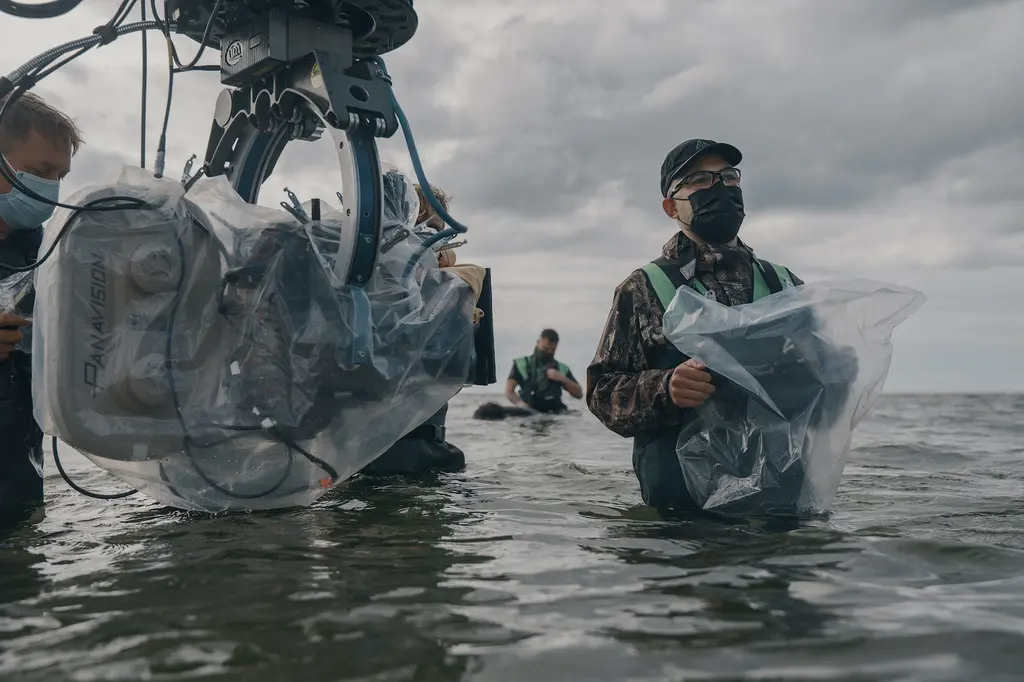
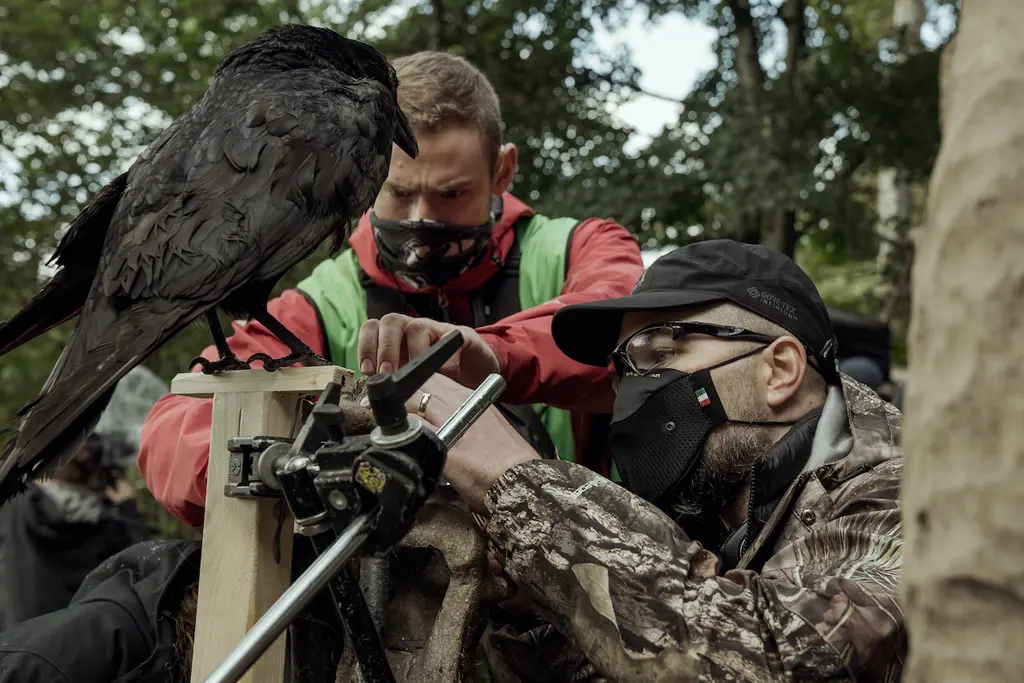
The berserker scene. Phew. What notes did you give to Alexander and his fellow pillagers before the ritual round the fire that kicks off all that action?
I had worked with a butoh choreographer for some stuff in The Witch, Denise Fujiwara. I showed her this YouTube video of a woman doing something really incredible, and I said: “How did she do that?” And she’s like: “Well, that’s not her. Something has entered her.”
That discipline interested me in [depicting] these berserkers who are going to transform and lose their human side and become beasts.
Then on The Northman were working with a butoh choreographer named Marie-Gabrielle Roti. She and I were looking at different shamanic rituals and war dances from around the world. And then there are a handful of images from slightly before the Viking period that we think are depictions of Germanic spear dances. So we used those images with all this other cross-cultural stuff, and tried to make our own Nordic, shamanic spear dance that would inspire this transformation.
Proper. How important was it that metaphysical elements featured in your film as much as the bloodily violent stuff?
It’s totally crucial, because that’s how they saw the world. And it’s an enjoyable way for me to work. Obviously, there’s a lot of things about Viking culture that are despicable and a lot of things about Viking religious rituals that wouldn’t work today, to put it mildly. But: living in a secularised society, I’m interested in cultures that see significance in the sublime everywhere.
You’re a filmmaker for whom detail is everything. Doa doesn’t have the biggest role in the finished movie. What purpose does her character fulfil for you in this sweeping epic?
She is one of the characters that lets us into female life in the Viking Age. She’s an enslaved person, but she’s also a great singer and storyteller. We know that most of the women who came to Iceland in the settlement period were of Celtic origin. And her character, Melkorka, is based on a saga character who was also of Celtic origin. So it’s fun.
Her mother has a very powerful cameo just after the berserker raid. What does the character of the witch bring, and why were you keen for Björk to take her first film role in 17 years?
Obviously, Björk’s persona is somewhat of a shamaness. So to have her be the seeress for our movie was an honour. I mean, it felt like a necessity. But unless Björk wanted to do it, of her own volition, it didn’t matter if it felt like a necessity to me! Thankfully, she felt like it was a familial atmosphere and was happy to do it.
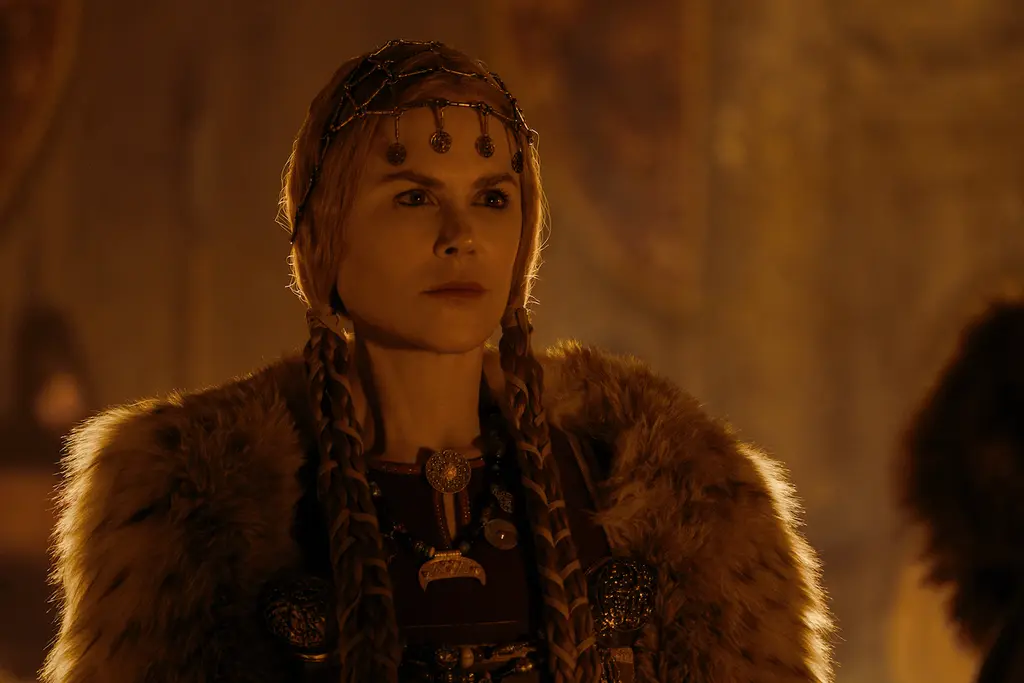
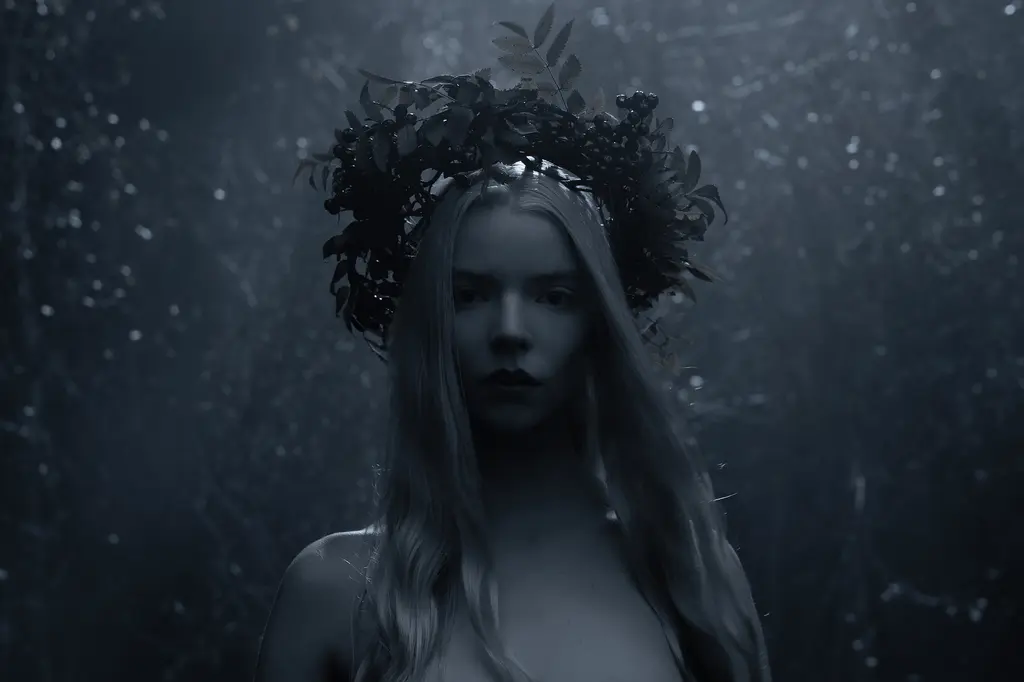
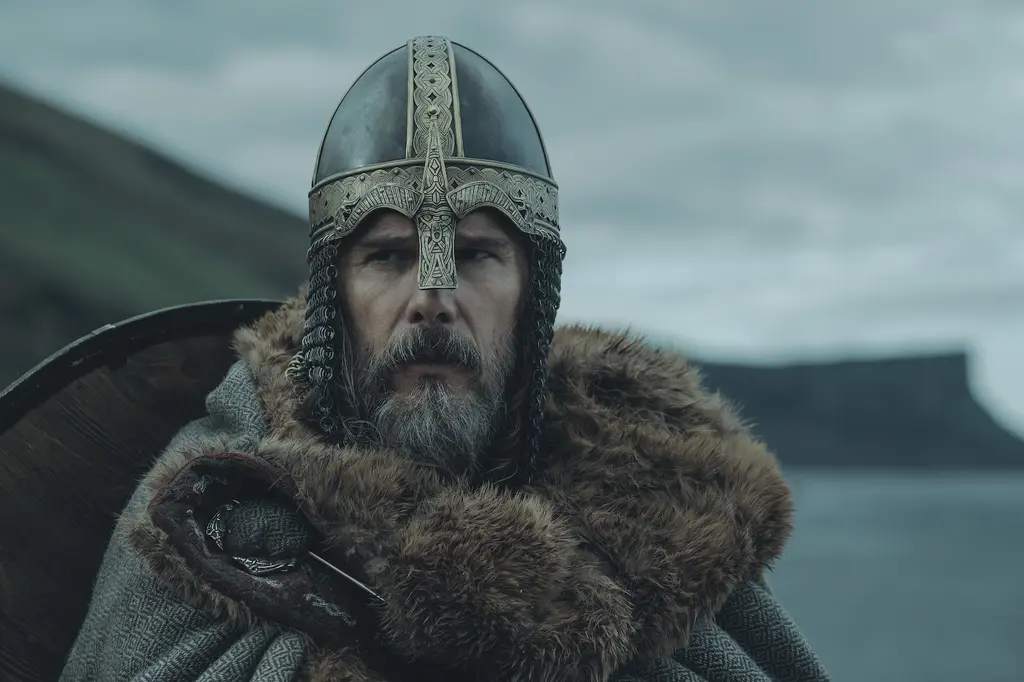
And it is a crucial, pivotal scene for Alexander’s character because it sets him back on his path, right?
Very much so. He is lost before then. If we’re using The Lion King, he’s in his Hakuna Matata phase – he needs to get back to the Pride Lands. I watched that with my son right before I left to come to Europe, so it’s fresh in my head!
Aside from, uh, honouring The Lion King, what was your ambition or vision for this film?
Sadly, to make the definitive Viking movie. The great Viking movie that exists is the [Richard] Fleischer movie [1958’s The Vikings]. And honestly, for a 1950s Hollywood movie, it’s pretty good as far as the nerdy historical stuff that I like. Although Kirk Douglas would have been shamed by everyone for being beardless in the Viking Age.
But other than that, there’s not a lot of great Viking films. And I’m incredibly grateful to the History Channel and [Netflix’s] The Last Kingdom and all the recent video games which have created an interest in Viking culture, because [they] got my film financed. But of course, they’re following the tradition of [Ride of the Valkyries composer Richard] Wagner in reinventing Vikings for their own pop culture needs and wants, and what they think looks cool.
As a side note on the beards: what was the totemic importance of beards in Viking culture? A pure expression of virility?
I think so. I haven’t read any specific quote about why beards are important. But there’s so many nicknames that have to do with people’s beards. And there’s descriptions of people being “well bearded”. Then, in Njal’s saga, the protagonist is a Viking lawyer with prophetic visions – but he can’t grow a beard. He’s completely ridiculed and called all kinds of feminine slurs because he can’t grow a beard. And his sons are called dung-beardlings!
Dung as in shit?
Yeah! Either because their scrappy beards look like someone shit on their face. Or there’s an implication that they’re using dung to darken their beards.
Did you find that, even accidentally, your own beard grew more fulsome while making this movie?
During the lockdown, I let it go kind of big. But I learned my lesson on The Lighthouse that you should let actors have the biggest beards.
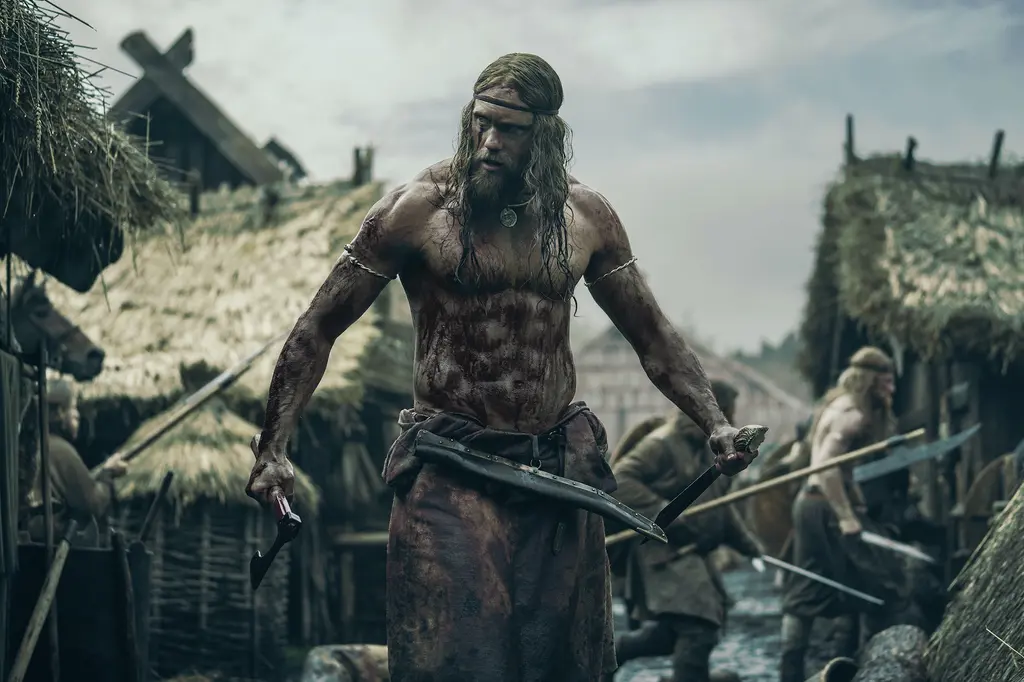
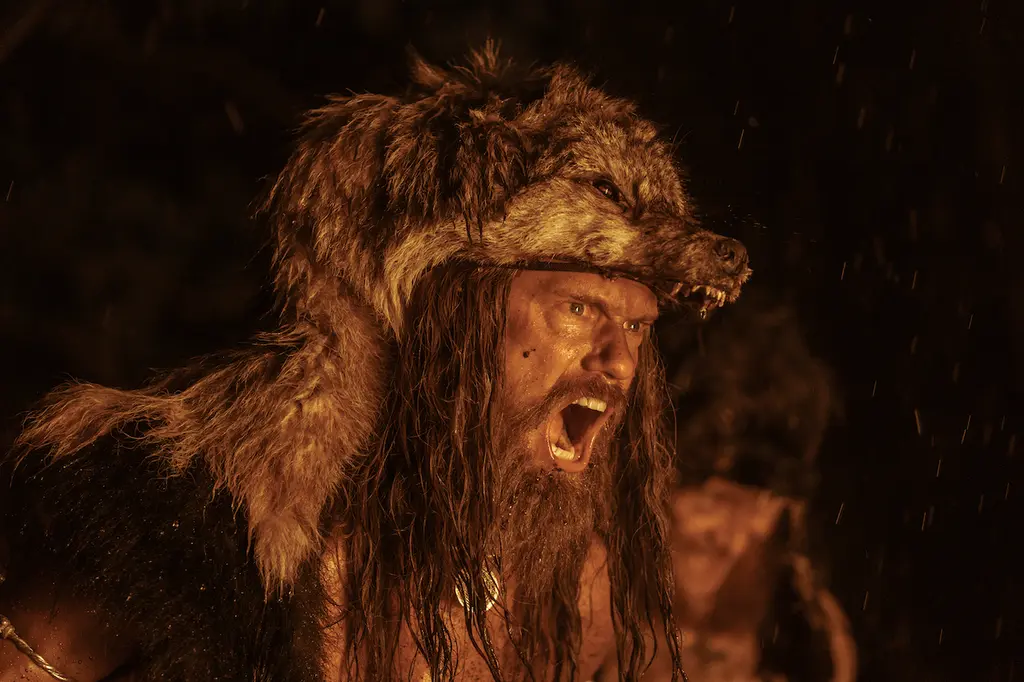
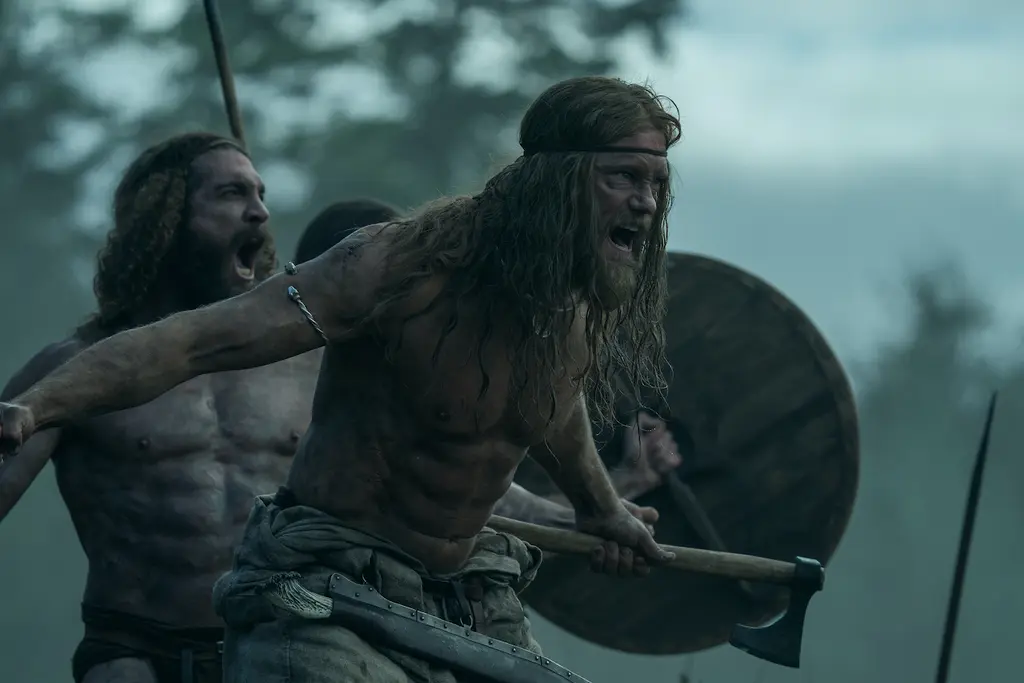
It’s always a good idea to let Defoe and Pattinson have the hairiest faces. Broadly, what is the appeal of Vikings and the Viking lore for you?
Well, initially I was totally not interested in Vikings, because the macho stereotype did not appeal to me particularly. Then the right wing misappropriation of Viking culture turned me off completely, frankly.
But when I went to Iceland, the landscapes, of course, are unlike anything else. And they inspired me, and they made me pick up the Sagas. So then I [understood] that, yes, this is a violent, patriarchal culture, and this kind of looming stereotype is true. But what’s more interesting to me is the poetry, and the visual arts, and to understand that, because of the trade [routes] and the efficiency of their ships, the world was a smaller place than I thought.
And the cultural fusion and religious fusion was the most striking thing. Amleth in the movie wears a medallion, a piece of Viking jewellery, that’s made from an Arab coin. You know, that’s cool.
What made Alexander your Northman?
Alex came to me. We were just having “a general”, which is a [Hollywood] meeting about nothing that you’re made to go on. But really quickly, he told me he’d been trying to make a Viking movie for 10 years with my friend, Lars Knudsen, who produced The Witch. And I was shocked that I didn’t know about this.
So started talking and decided that maybe this could work, the two of us making a Viking movie. But Alex, unlike myself, has been passionate about Vikings since he was a kid. You can see in the film that he commits himself 300 per cent, that he was not going to have his performance be anything less than perfect. He transforms his body, he becomes a complete beast, he channels a kind of fury that is not easy and puts [him] in a vulnerable place – and is also not Alex’s personality at all. I think what he does in the film is very special.
Agreed. He’s gone deep with it, and not just in the physical transformation. You wouldn’t recognise him from Succession.
And he’s been talking a lot in the press about how I drove him to the edge with so many takes and the difficulty of it all. But there were definitely times – many times! – when Alex was the one who asked for another take. Because he’s a perfectionist, too.
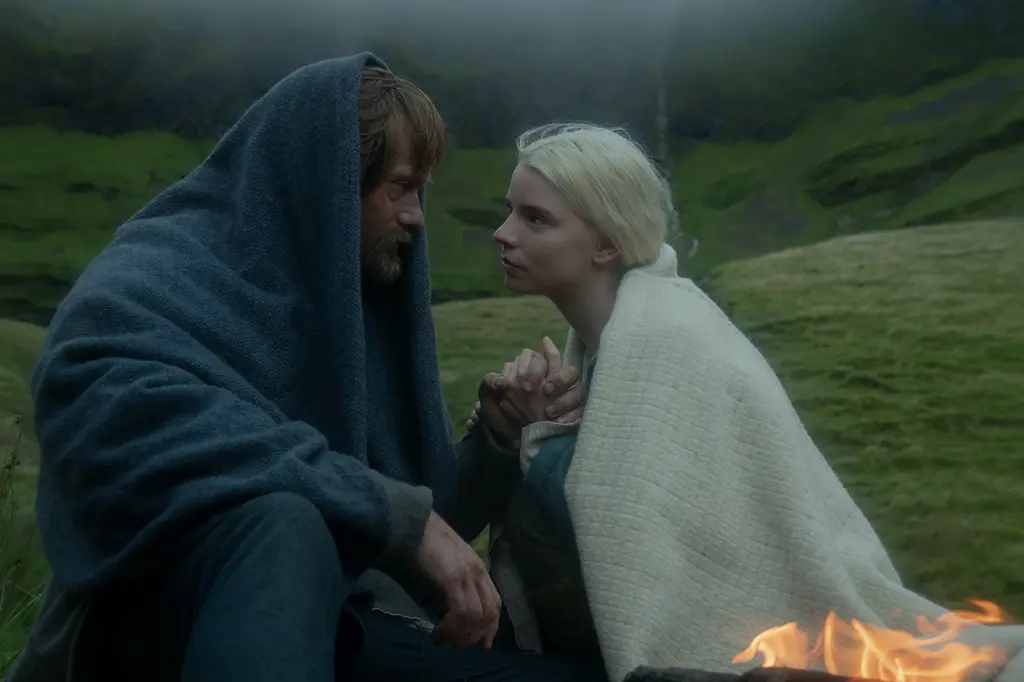
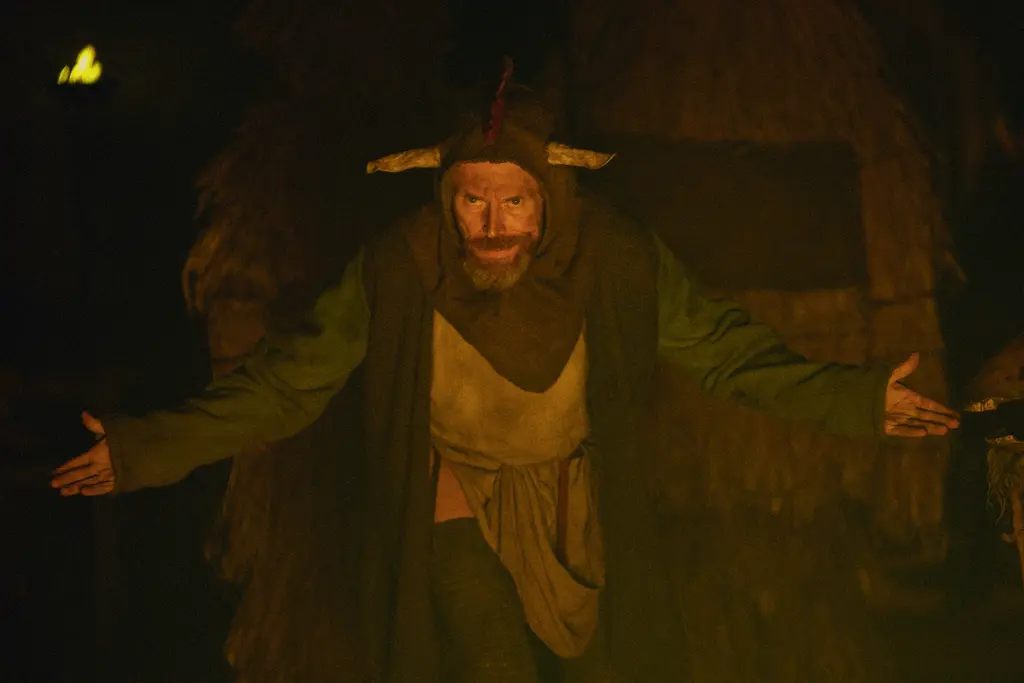
You mentioned The Witch earlier. The very first audition tape you watched for the lead part of Thomasin was from an unknown 17-year-old, fresh out of school in London, called Anya Taylor-Joy. What do you remember of that tape?
I remember thinking: “There’s no way that the first tape can be The One. So even though this seems great, I’m not so sure. I have to see more.” I have to tell you that there are so many incredible actresses in the UK. [Because] really, virtually every woman who auditioned for that role was really good. But Anya was the only person who was Thomasin.
And by the way, she changed my mind about what Thomasin was. I originally pictured someone more homely, in the American definition of the word, not the British definition of the word. But on her tape, her charisma was so explosive.
Then the [other] thing with Anya is that she said all the lines exactly the way I imagined them when I wrote it. I was working with all these other actors in the audition process to coax out this performance, and get this line to go up and this down. And she just always did it.
When you were scripting The Northman, was she always in your mind as the Slav sorceress?
For sure. The role was written for her, like Dafoe’s role was written for him.
What role is she playing in Nosferatu?
Uh… if it indeed happens, she would be [vampire victim] Ellen.
OK, hmm. Are you saying the project has been thrown into doubt by the departure of Harry Styles?
[Pause] You know, I don’t know why I [just] said what I said. I think I should respectfully disengage from this conversation! But I am heralding the point that Harry Styles was to play [estate agent’s assistant] Thomas Hutter and not the titular vampire.
What made him a good Thomas Hutter for you?
Um, he read for it.
And he was good?
Have you seen me cast someone that sucks?
Very good answer. I know you’re in the thick of promotion for The Northman right now. But where do you go next? Prague, where Nosferatu was due to film?
I stay in this [hotel] room for an infinity. But I’m used to tromping around for a year with a movie, going to festivals. And this is just one, crazy, full-on month. And then I can put myself in my coffin and bury myself.
But you will make Nosferatu first, right?
You know, it fell apart twice. It would be a shame if it never happened.
We’re rooting for you, Rob! Come back, Harry!
The Northman is released on 15th April











